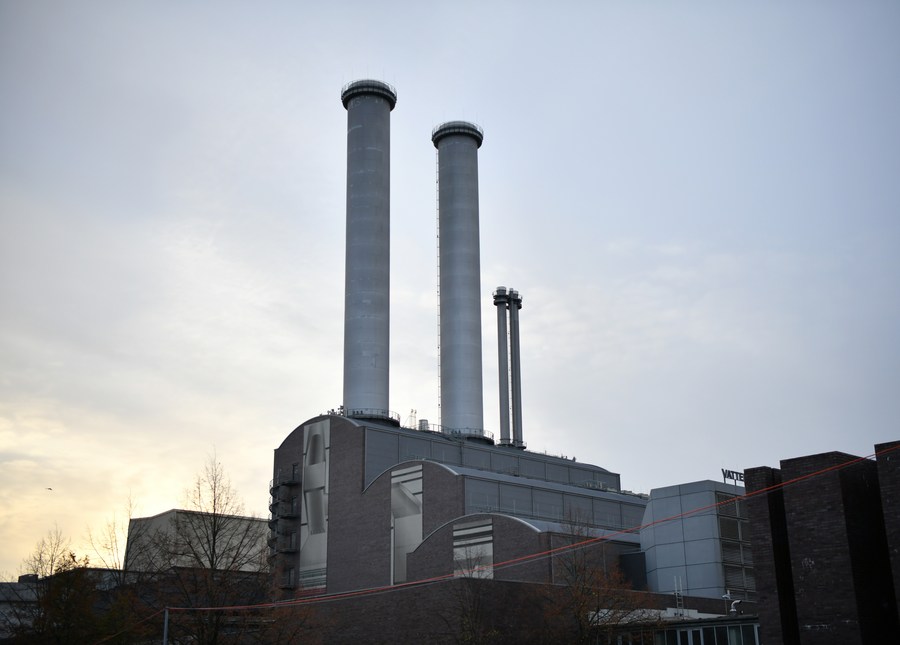Employment in Germany reaches all-time high

Photo taken on Nov. 6, 2022 shows tower cranes at a construction site in Berlin, Germany. (Xinhua/Ren Pengfei)
The strongest growth was again recorded in various service sectors, such as public services, education and healthcare. There were also slight increases in employment in manufacturing and construction, according to Destatis.
BERLIN, Nov. 17 (Xinhua) -- Employment in Germany reached a new all-time high of around 45.6 million in the third quarter (Q3) of 2022, according to provisional figures published by the Federal Statistical Office (Destatis) on Thursday.
The figure was 82,000 higher than the previous record set in the fourth quarter of 2019, before the start of the COVID-19 pandemic, said Destatis.

Photo taken on Nov. 7, 2022 shows a plant in Berlin, Germany. (Xinhua/Ren Pengfei)
The strongest growth was again recorded in various service sectors, such as public services, education and healthcare. There were also slight increases in employment in manufacturing and construction, according to Destatis.
In agriculture, forestry and fishing, on the other hand, the number of people in employment continued to fall. "This decline confirmed the long-term trend in this sector," Destatis noted.
Unemployment in Europe's largest economy also remains relatively stable. In October, figures declined slightly month-on-month to 2.44 million, and were only 65,000 higher than last year.

A staff member serves beer on the opening day of the Oktoberfest 2022 in Munich, Germany, Sept. 17, 2022. (Xinhua/Shan Weiyi)
"Despite all the risks, the German labor market is largely stable, and demand for labor from companies is only gradually being affected by the threat of an economic slowdown," Holger Schaefer, senior economist at the German Economic Institute (IW) told Xinhua.
The negative effects of the looming economic cooldown, however, were "already apparent in the current monthly figures, but not yet in the quarterly figures," Schaefer added. "The strong growth in employment seen this year is not expected to continue next year."
Germany's economy is expected to enter a recession next year. Due to the energy crisis, the country's gross domestic product (GDP) was likely to fall 0.2 percent in 2023, according to the latest forecast by the German Council of Economic Experts (GCEE).
Photos
Related Stories
- World's largest medical technology fair opens in Germany
- German economy to contract by 0.2 pct next year: GCEE
- China, Germany should keep to overall direction of bilateral ties from strategic height: Xi
- German industrial production rises despite energy crisis, supply problems
- In pics: German Bundestag in glow of sunset in Berlin
Copyright © 2022 People's Daily Online. All Rights Reserved.









